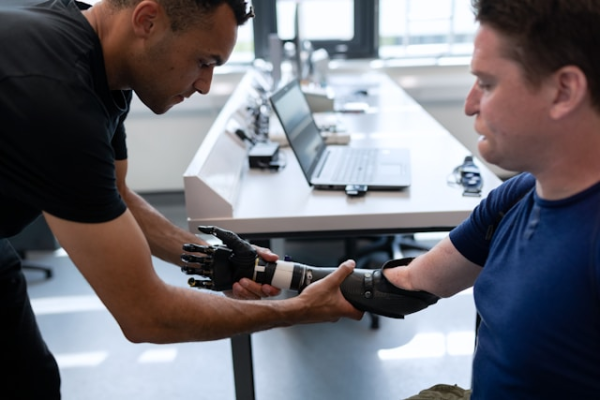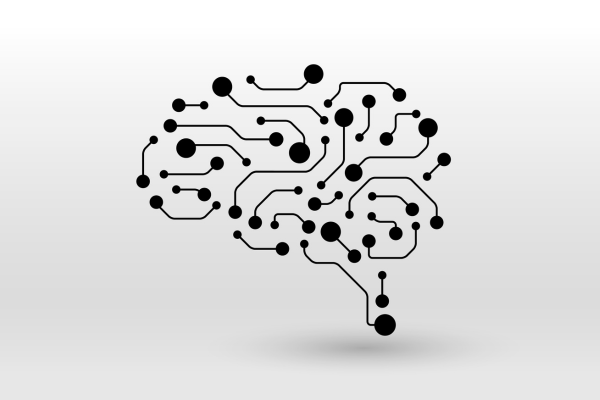How AI Can Transform the Field of Physiotherapy

Artificial Intelligence (AI) is revolutionising numerous industries and physiotherapy is no exception. With advancements in machine learning, data analytics, and robotics, AI has the potential to redefine how physiotherapists diagnose, treat, and manage patients. Here are several ways AI is poised to change the field of physiotherapy, enhancing both patient care and professional practice.
Personalised Treatment Plans
AI can help physiotherapists create highly personalised treatment plans by analysing a vast amount of patient data. This data includes patient history, injury types, and recovery patterns, which can be processed to predict recovery times and the most effective exercises for individual patients. Machine learning algorithms can identify subtle patterns and correlations in data that human practitioners might overlook, leading to more targeted and efficient therapies. This personalised approach ensures that patients receive the best possible care tailored to their specific needs and conditions.
Enhanced Diagnosis and Assessment
Traditional physiotherapy relies heavily on the practitioner's experience and judgment to diagnose musculoskeletal conditions. AI can enhance this process by utilising computer vision and deep learning to analyse medical imaging, such as X-rays, MRIs, and CT scans. These AI systems can identify abnormalities and predict potential problem areas with remarkable accuracy, sometimes even surpassing human experts. With AI's assistance, physiotherapists can make quicker and more accurate diagnoses, allowing for faster intervention and better patient outcomes.
Remote Monitoring and Tele-Rehabilitation
The COVID-19 pandemic has accelerated the adoption of telehealth services, including tele-rehabilitation in physiotherapy. AI can take this a step further by enabling remote monitoring of patients' progress through wearable devices and mobile apps. These technologies can track a patient's movements, exercise adherence, and recovery progress in real-time. AI algorithms analyse this data to provide feedback to both the patient and the physiotherapist. This real-time insight allows for timely adjustments to treatment plans, ensuring optimal recovery even when face-to-face visits are not possible.
AI-Powered Robotics and Exoskeletons
Robotics, powered by AI, is making significant strides in physiotherapy, particularly in neurorehabilitation and post-surgery recovery. AI-driven robotic exoskeletons can assist patients with mobility impairments, such as those recovering from strokes or spinal cord injuries, in regaining strength and movement. These devices use AI algorithms to adapt to the patient’s progress, providing the right amount of support and resistance. Such intelligent robotics can drastically improve patient outcomes by promoting early mobilisation and reducing recovery times.
Gamified Rehabilitation and AI Coaching
Gamification is another exciting development in physiotherapy, where AI-powered platforms create interactive, game-like environments for patients to perform their exercises. These systems use motion capture and AI algorithms to monitor patients’ movements and provide real-time feedback, making rehabilitation more engaging and motivating. Virtual AI coaches can guide patients through their exercises, ensuring they are performed correctly and effectively, reducing the risk of re-injury due to improper technique.
Predictive Analytics for Injury Prevention
Injuries can often be prevented by identifying risk factors and correcting movement patterns early on. AI can analyse data from wearable sensors and fitness trackers to detect anomalies in movement that may lead to injuries. By predicting these risks, physiotherapists can intervene proactively, providing targeted exercises and guidance to prevent injuries before they occur. This proactive approach is particularly beneficial in sports physiotherapy, where injury prevention is crucial for athletes.
Streamlined Administrative Tasks
Beyond patient care, AI can also help physiotherapists with administrative tasks such as scheduling, billing, and electronic health record (EHR) management. AI-powered tools can automate these time-consuming processes, allowing physiotherapists to focus more on patient care. Additionally, AI can assist in documentation by summarising patient visits and creating reports, reducing the burden of manual paperwork.
Conclusion
AI is set to transform physiotherapy by enhancing diagnostic accuracy, personalising treatment, enabling remote monitoring, and even assisting with administrative tasks. While the integration of AI into physiotherapy is still in its early stages, the potential benefits are immense. Embracing these technologies can lead to more efficient practices, better patient outcomes, and a more proactive approach to healthcare. As AI continues to evolve, it will undoubtedly play a pivotal role in the future of physiotherapy, making it more dynamic, effective, and patient-centric.
If you have found this blog post insightful and helpful then please make sure you are following Globe Locums and myself Alan Gordon to stay up to date with future blog posts and updates from the Physio world!

Latest Physiotherapist Jobs
We currently have a variety of locum and permanent vacancies across the UK and Ireland





